25 BUSINESSMEN WHO BROKE SOME RULES AND LAWS
Fortunes are rarely won by playing it safe. On the contrary,
the biggest fortunes have been won by those willing to step outside the
box and change the way the game is played. Following are twenty-five
business innovators of the past, present, and future whose stories are
different in many respects, but all point to the same truth: Ingenuity,
improvisation, and daring are more important than following the rules
(even though you might find yourself on the wrong side of the law once
in a while).
1. Jack Welch
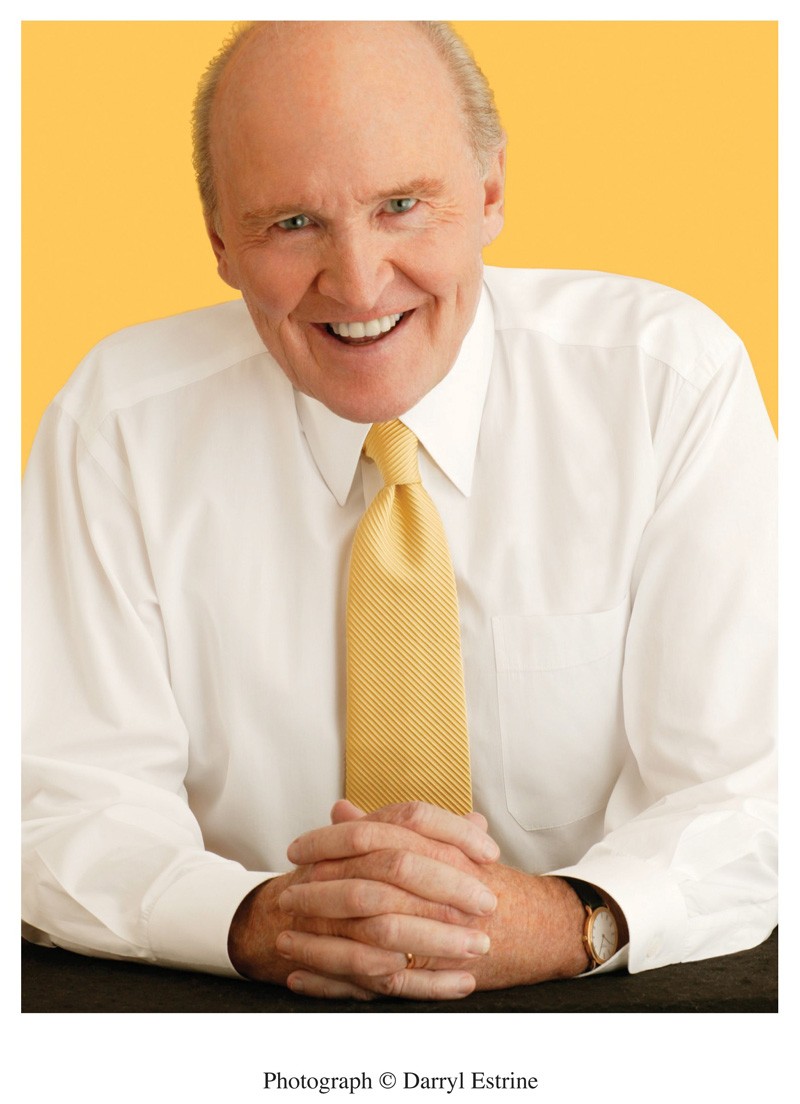
Named “Manager of the Century” by Fortune Magazine in 1999, Jack Welch
is perhaps most famous for streamlining GE, reducing management from 29
levels to only six, closing businesses, and firing a significant
percentage of his subordinates. Despite his strong, seemingly brash
tactics (he was nicknamed “Neutron Jack” for firing so many employees),
he brought the value of GE up from $12 billion to $280 billion, the
largest increase for any company under any CEO. He also championed the
notion of informality, which he brought to GE.
2. Steve Jobs

Co-founder of Apple and chairman of Pixar, Steve Jobs towers over Silicon Valley as a renegade and artist
as much as a business manager. Fortune magazine calls him a “global
cultural guru,” responsible for changing the way the world works and
plays. Yet, he has been criticized for his superior attitude, taking
credit away from his subordinates, micro-managing his business, firing
employees in fits of anger, and any number of minor infractions, such as
parking his Mercedes in handicapped spaces. His net worth is estimated
to be over $20 billion.
3. Sir Richard Branson
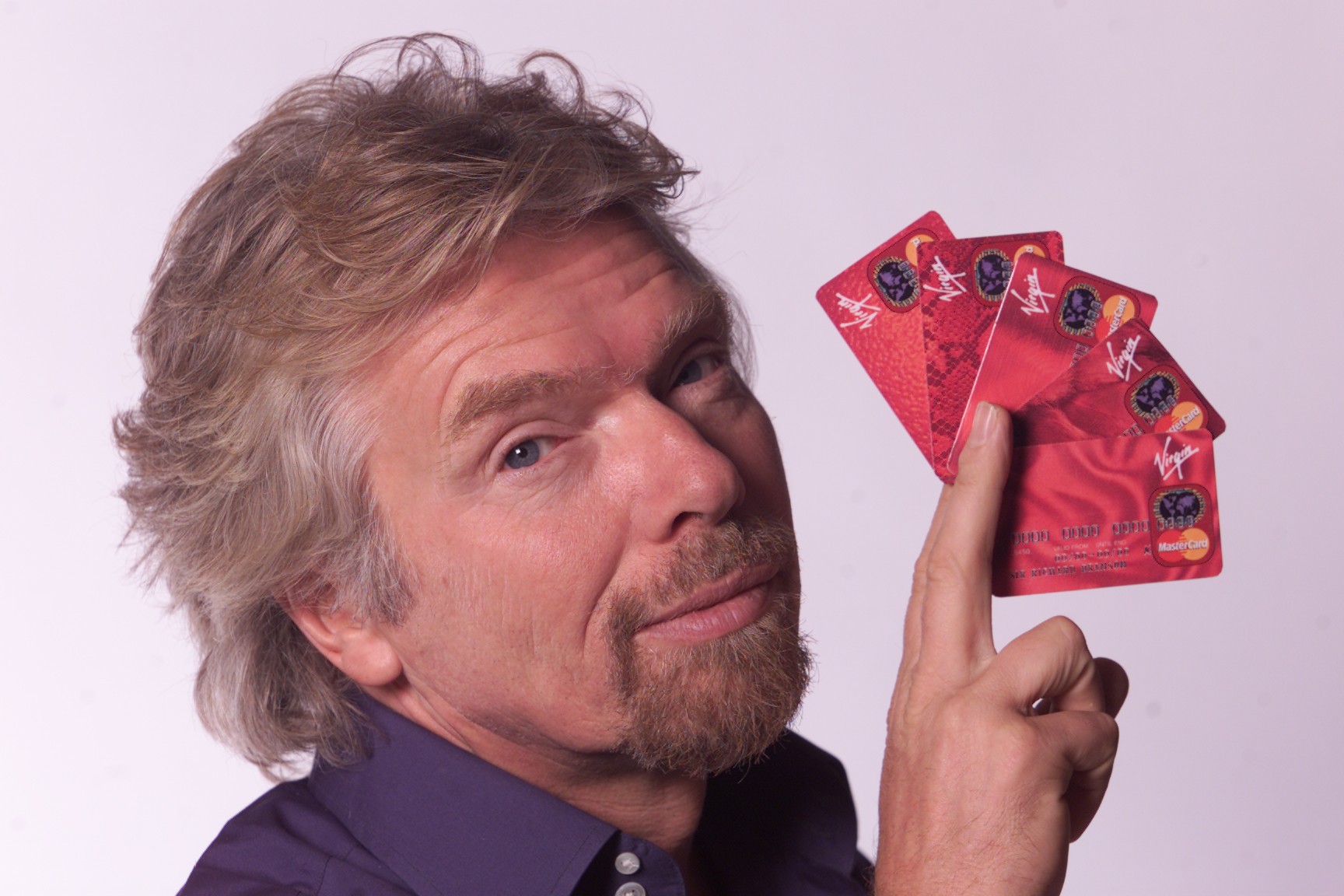
In 1972, at the age of 22, Richard Branson had recently opened his
first Virgin record store in London and signed his first artist, Mike
Oldfield, to Virgin records. Oldfield’s “Tubular Bells” was released
the next year and would sell millions of records, becoming a classic
document of electronic experimental music. Five years later, Branson
signed the Sex Pistols, a leading pillar of the British punk rock scene
who had been rejected by every other record label in England. In
addition to his groundbreaking Virgin record label, record stores, and
competitive airline, Branson is famous for his world record-breaking
attempts, earning him respect as a daredevil as much as a business
mogul. A charismatic and like able persona, he has appeared on a number
of the world’s most popular television shows, including Friends and
Baywatch. He also has a space plane.
If nothing else, Branson has proved that a man can be one of the
richest, most successful people in the world and still be cool.
4. Sam Walton


At the end of his autobiography, Made in America, Sam Walton wrote
that the most important rule in business is to break all the rules. He
has also said, “I always prided myself on breaking everybody else’s
rules, and I always favored the mavericks who challenged my rules.” His innovative and daring approach to business established the worldwide Wal-Mart chain, which replaced Exxon as the largest corporation in the world in 2002.
5. Bill Gates

It is common knowledge that the richest man in the world is a college
dropout. Instead of completing his education at the prestigious
Harvard University, Bill Gates decided to take a risk and devote himself
fully to a little business called “Microsoft” he co-founded with a
classmate, Paul Allen. Not content with the prevailing open-source
practices of software development, Gates decided to buck the system by
demanding a closed-source ethic. By changing the rules of software development, he established the software industry as we know it today.
6. Donald Trump

A self-made billionaire, real estate mogul Donald Trump is widely
regarded as a man who makes the rules. And among Trump’s rules for
success, you will not find the words, “humility,” “generosity,”
“sympathy,” or “compassion.” The quintessential bullying boss, Donald
Trump is a cultural icon
and one of the most famous people in the world. Comparing publicity
photos from his early years of fame with his more recent dominance on
the world’s stage, it is clear Trump has cultivated a distinctly mean
image. It is possible he still enjoys smiling, but apparently it is no
longer marketable. While nobody is questioning his head for business,
Trump’s fame, if not his fortune, is less attributable to any specific
business deals or professional decisions than to his “mean boss” imagine
and his high-profile personal life (including his widely publicized
divorce from Ivana Trump and his scandalous sex life with Slovenian
supermodel, Melania Knauss, who would become his wife).
7. Henry Ford
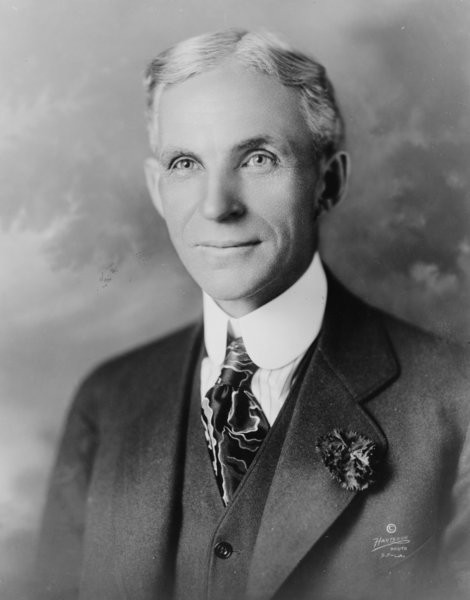
The father of the modern automobile, founder of the Ford Motor Company, and inventor of the moving assembly line was a highly unconventional business leader.
Henry Ford challenged his times (and his investors) by insisting on
producing affordable automobiles for a mass market. He paid his
employees much more than was common at the time, creating what he called
“wage incentive” and thereby attracting and keeping a strong work
force. Advocating “welfare capitalism,” Ford took an unusual amount of
interest in the lives of his employees, requiring them to live according
to the rules set by his “Sociological Department,” which restricted how
they spent their leisure hours. His risks paid off, and Ford Motor
Company has helped define the modern urban landscape.
8. Ray Kroc
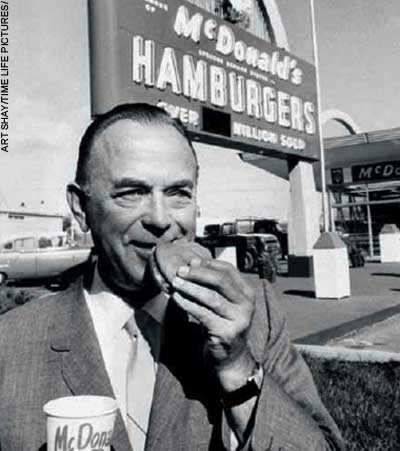
Ray Kroc
did not open the first McDonald’s restaurant. He just turned a small,
family-owned drive-in into a multi-billion-dollar global franchise.
Like Henry Ford before him, Kroc’s ingenuity was in finding a way to
bring high quality goods to a mass market. He revolutionized the
restaurant industry by introducing strict guidelines for how his items
were produced and sold. He turned the sale of hamburgers into a
science, and even had his franchise owners earn a “Bachelor in
Hamburgerology” at McDonald’s training institute. Unlike Ford, however,
Kroc has been criticized for paying his employees as little as
possible, and has been accused of trying to circumvent minimum wage
laws.
9. Jim Buckmaster
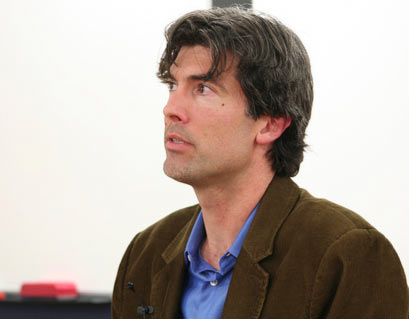
Despite its enormous popularity, Craigslist
has not received a great deal of respect as a business. Part of the
reason is that the world’s premiere classifieds service seems to go out
of its way to avoid making a profit. Most of the service is free. (It
generates revenue solely through small fees for apartment and job
listings in select cities.) There is no advertising. No branding. No
attractive user interface. In sum, Craigslist does not actively compete
for business. Craigslist’s CEO since 2000, Jim Buckmaster says the key
to their success is an anti-commercial value system based on three
“ironies”: “the ironies of unbranding, demonetizing, and noncompeting.”
Instead of going for the quick profit like other startups, Craigslist
survived the dot-com boom and bust by providing a service as simply and
straightforwardly as possible. Buckmaster says, “We’re definitely
oddballs in the Internet industry, and we always have been. Lots of
people made fun of us, especially at the height of the dot-com boom.
Most of those people are out of business now.”
Source
Taylor, William C. and LaBarre, Polly. Maverick’s At Work: Why the Most Original Minds in Business Win (HarperCollins 2006), pp. 37-39.
Taylor, William C. and LaBarre, Polly. Maverick’s At Work: Why the Most Original Minds in Business Win (HarperCollins 2006), pp. 37-39.
10. Li Ka Shing
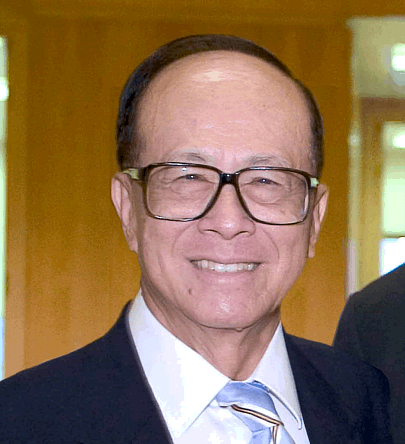
Li Ka Shing’s
is the true American story: hard work, determination, and smart
choices brought him out of poverty and into the green. The only
difference is Shing is from China. The richest man in Hong Kong, Forbes
magazine has reported Shing’s net worth to be $26.5 billion.
Not bad for a man without a high school diploma. Loyal to his humble
beginnings (his family fled China, penniless, when it was invaded by
Japan), Li Ka Shing famously prefers not to flaunt his wealth. He is
soft-spoken, pleasant, and wears inexpensive shoes and watches. At the
same time, his discipline and clear head for business have earned him
the nickname, “Superman.” A unique mixture of East and West, Li Ka
Shing does not quite fit any mold.
11. Rupert Murdoch
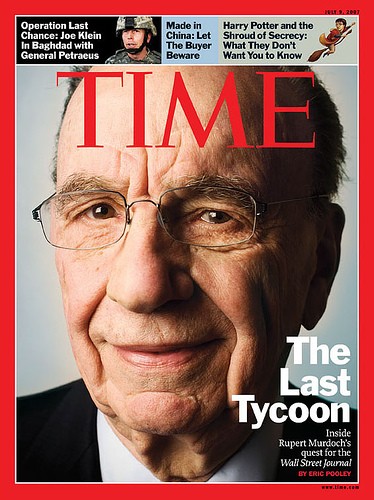
Media mogul Rupert Murdoch is one of the most powerful men in the world,
with the News Corporation, Fox News, and the New York Post among his
many credits. The 109th-richest man in the world, and a Grand-Officer
in the Catholic Order of St. Gregory the Great (an honor bestowed upon
the Australian-American by Pope John Paul II, even though Murdoch is a
Protestant), Murdoch has been widely criticized for wielding too much
power over the media and unethically using his properties to promote his
conservative political views. Throughout Murdoch’s entrepreneurial
career, he has balanced his media and political interests on a finely
drawn line, and not always without incident.
12. Kerry Packer
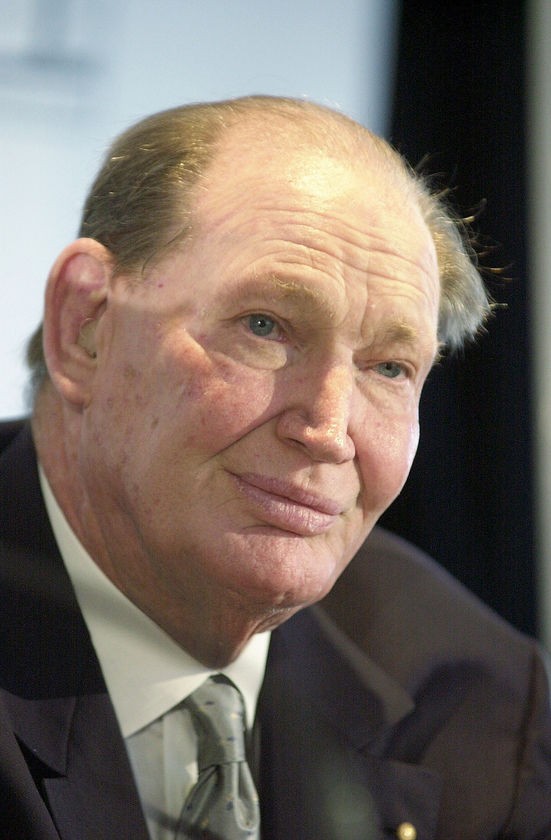
When he died in 2005, Kerry Packer was the richest man in Australia
and the major shareholder of Publishing and Broadcasting Limited. When
his father, media mogul Frank Packer, died, Kerry inherited the family
empire, which would have gone to his older brother Clyde had it not been
for a family dispute which ended with Clyde leaving for America. The
arch-rival of media mogul Rupert Murdoch, Kerry Packer was often
surrounded by controversy, to the point of being accused of tax evasion,
organized crime, and drug trafficking. Though all charges were
eventually dismissed, Packer is still remembered in Australia as “the
Goanna,” a title referring to his alleged role in organized crime.
13. Paris Hilton
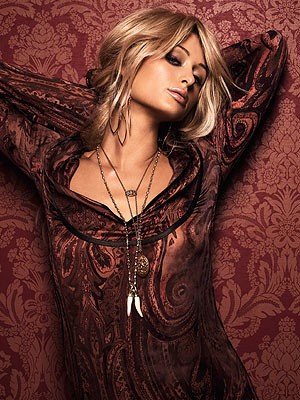
She is an heiress, an opportunist, a pop icon, and the scandalous
trend-setter responsible for making celebrity sex tapes hip. Many are
reluctant to add “businesswoman” to the list. Paris Hilton has been
dubbed the “Most Overrated Celebrity” by the Guinness Book of World
Records, and is the second “Worst Celebrity Role Model of 2006,”
according to an Associated Press/AOL poll. Yet, one could argue that
all the controversy and disfavor is evidence of her daring and ingenuity.
Paris Hilton has made millions of dollars by doing things that are
supposed to get famous people into trouble: going to drunken parties,
making sex tapes, and being a generally irresponsible, less-than-brainy
presence. She does have several businesses, and she has released an
album, published an autobiography, and starred in films and television
shows. Despite all that, her greatest success is her ability to remain
in the global spotlight. When she can earn hundreds of thousands of
dollars for making an appearance at a party, the fact that she has
fragrance and clothing lines is beside the point.
14. Andrew Carnegie
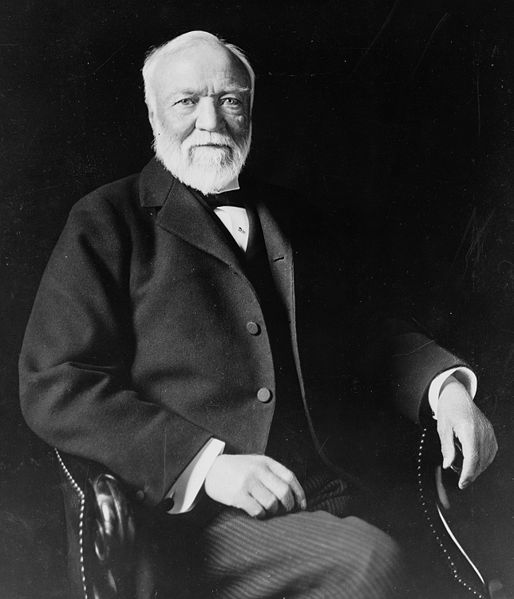
A poor Scottish immigrant, Andrew Carnegie
rose to become the richest man in America by recognizing the need to
change. He adjusted to developing markets, invested heavily in new
technologies, and was not afraid to question his own advice. At the age
of 33, wary of the toll his devotion to wealth was taking on his
well-being, he wrote a letter to himself instructing him to leave the
world of business for good in two years. Needless to say, he did not
follow that advice. This was not the only time his actions were not in
line with his words. For example, Carnegie was unconventional in his
outspoken devotion to political egalitarianism and the rights of workers
to form unions; however, he approved the anti-union tactics of Henry
Frick which famously led to an unknown number of deaths in the Battle of
Homestead. Carnegie did make an effort to live up to his motto that
“the man who dies rich dies disgraced”: By the time of his death, he
had given away $350 million, mostly to establish libraries and support
institutions of higher learning.
15. Boris Berezovsky
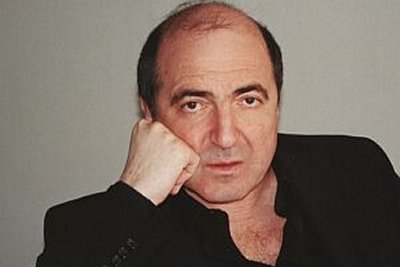
More than in most parts of the world, corruption is a known part of
business and politics in Russia. Of course, businessmen and politicians
generally refrain from alluding to the more nefarious side of their
ambitions. Boris Berezoysky
is something of an exception. While he has denied all allegations
regarding his connections to criminal enterprises, the billionaire has
openly threatened to take down Vladimir Putin “by force.” Berezoysky
helped bring Putin into power and now accuses him of murder. It is no
wonder Berezovsky has been the target of assassination attempts. An
accomplished member of the Russian Academy of Sciences, Berezovsky
published numerous books and articles on applied mathematics before
making his fortune buying and selling cars. He currently goes by the
name Platon Elenin and lives with political asylum in the United
Kingdom.
16. Arkadi Kuhlmann
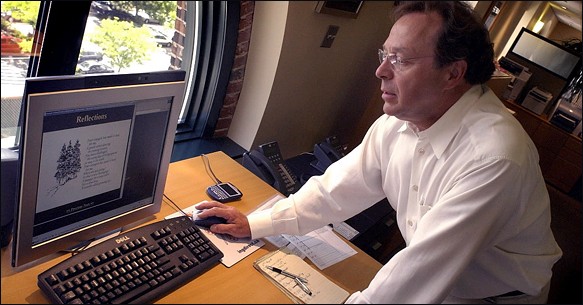
He calls himself “sort of the bad guy” of the banking establishment. The founder and CEO of ING Direct USA, one of America’s fastest-growing retail banks, Arkadi Kuhlmann
says he does not even like banks and he hates credit cards. Out to
“reenergize” the banking industry, Kuhlmann is a strong-minded rebel who
runs his bank without ATM machines or brick-and-mortar branches. All
transactions are carried out electronically, without minimum deposits or
customer fees. Unlike most financial CEOs, Kuhlmann says he is
determined to help people save money, not spend it. As he says, he wants to make saving money “cool.”
Source
Taylor, William C. and LaBarre, Polly. Maverick’s At Work: Why the Most
Original Minds in Business Win (HarperCollins 2006), pp. 4-5.
17. Chris Albrecht
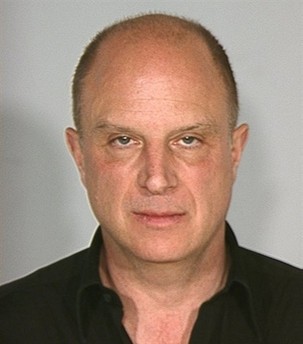
As CEO of Home Box Office (from
July 2002 until May 2007), Chris Albrecht led HBO’s revolution of the
television industry as the overseer of original programming, including
such hit series as The Sopranos, Sex & The City, and Six Feet Under.
Personifying the forward-thinking business executive, Albrecht takes
the network’s slogan (“It’s not TV. It’s HBO.”) literally. Instead of
hoping to follow up past successes using the same formula, Albrecht
believed the future of HBO depends on its ability to stay in front of
change, expanding beyond television technologies.
Source
Taylor, William C. and LaBarre, Polly. Maverick’s At Work: Why the Most
Original Minds in Business Win (HarperCollins 2006), pp. 26-29.
18. Michael Dell
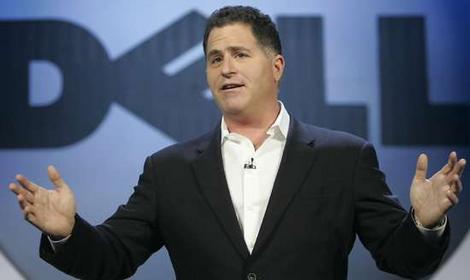
Widely regarded as one of the most important innovators of the computer industry, Michael Dell
defied convention by cutting out the middle man and selling PCs
directly to consumers, allowing them to custom order machines by phone
and mail. A college dropout, he is now one of the world’s top three PC
manufacturers and one of the richest men in the world. (If you compare
their net worths, it looks like Dell could buy 6 or 7 Donald Trumps.)
Some of his competitors have coveted his unique business model, but
without matching his success. He has won such accolades as “Man of the
Year” by PC magazine, “Top CEO in American Business” by Worth, and
“Entrepreneur of the Year” by Inc. magazine. Dell.com is one of the
largest consumer e-commerce sites on the Web.
19. Roman Abramovich
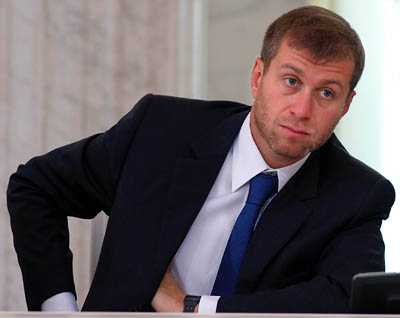
Sometimes called the “quiet oligarch,” Forbes’ 15th wealthiest
billionaire has always kept a closed lid on his affairs. A Russian oil
magnate and owner of the Chelsea Football Club, Roman Abramovich
has impressed the world with his daring and often surprising business
decisions. Despite accusations that he has made his fortune by
exploiting the malaise of others, Abramovich has been honored as
Russia’s “Man of the Year” by Expert magazine and was awarded Russia’s
Order of Honor for his charitable work developing the region of
Chukotka, for which he has also been a representative and governor.
Abramovich was making multi-billion-dollar business deals before his
40th birthday. He has admitted to spending billions of dollars on
political favors.
20. Jeff Bezos

One of the pioneers of e-commerce, Amazon.com
used to be all about books. Now it is on the leading edge of Web
development, redefining how people buy and sell everything from movies
and music to make-up and appliances. By exploring and mainstreaming
technologies, such as Amazon Kindle and Amazon Mechanical Turk, Amazon is changing how people read books and how consumers interact with market leaders. Jeff Bezos,
the man behind the phenomenon, says a lot of his success has to do with
luck and intuition. Always with an eye on the customer, Bezos has
taken enormous risks which have not always worked to Amazon’s advantage.
Yet, he managed to guide Amazon through the dispiriting dot-com tumult
of the 90s, making it one of the few enduring pillars of the Web.
Unlike the CEO’s of other pioneering Web sites, such as eBay, Yahoo!,
and Google, Jeff Bezos has maintained his executive position from the
beginning, when it was just about selling books.
21. Sergey Brin and Larry Page
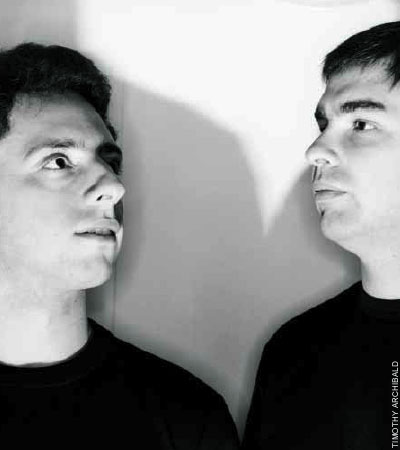
Together they pursued Ph.D’s at Stanford, developed the Google
search engine, founded Google, Inc., and became two of the richest men
in the world. In 2007, along with Eric Schmidt, the man they had hired
to help them look after Google, they were at the very top of PC World’s
list of most important people on the Web. They are investors in Tesla
Motors, a cutting-edge automobile start-up which produces electric
vehicles. They also bought a Boeing 767 together, which will eventually
be refurbished into an unusually large executive plane. They are still
officially on leave from their doctoral studies at Stanford.
22. Ingvar Kamprad & Family
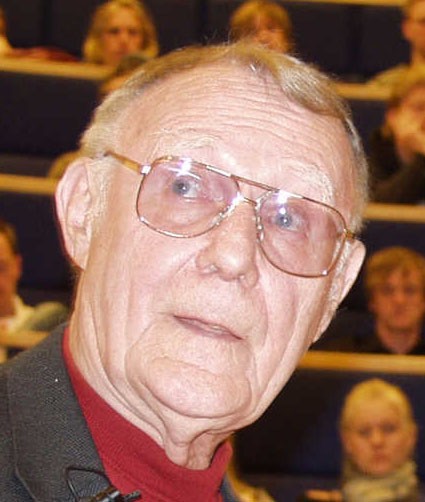
Most of the millions of people who shop at the hundreds of IKEA
stores across the globe have no idea that the first two letters of the
furnishing chain stand for “Ingvar” and “Kamprad.” (The last two
letters stand for the farm, Elmtaryd, and nearby village, Agunnaryd,
where he was born.) One of the key innovations behind IKEA’s success is
the way Kamprad
found ways to lower costs while offering stylish, original furniture
designs that are easy to take home and put together. Kamprad is
well-known for his frugality. Though he was dubbed the richest
European-born person in the world (his fortune is now technically shared
by his whole family), he prefers to drive an old Volvo and fly economy
class.
23. George Soros
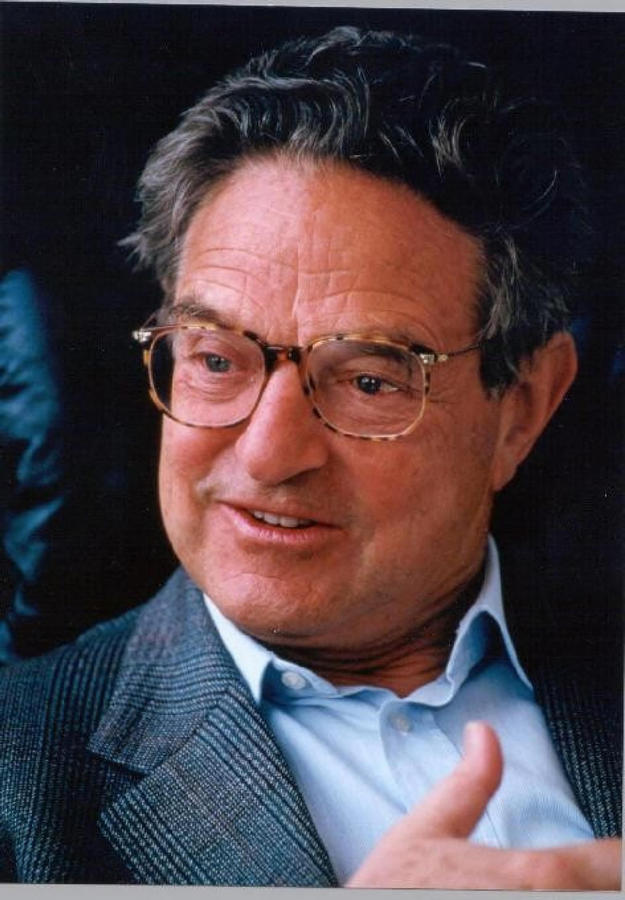
George Soros claims to have
started making money as a Wall Street analyst in order to fund his
interests in writing and philosophy. He studied under the great British
philosopher, Sir Karl Popper, whose book The Open Society and It’s
Enemies inspired Soros’ own Open Society Institute
(OSI), which “aims to shape public policy to promote democratic
governance, human rights, and economic, legal, and social reform,”
according to its Website. A self-made billionaire and notable
philanthropist, Soros has been criticized for not living up to his own
ideals of transparency, because the OSI does not disclose more than is
required by law and is unabashedly political in its aims. Of course,
much of that criticism comes from those less sympathetic to Democrats,
who Soros staunchly supports in a number of ways, such as by being the
largest financial backer of MoveOn.org.
24. Steve Wynn
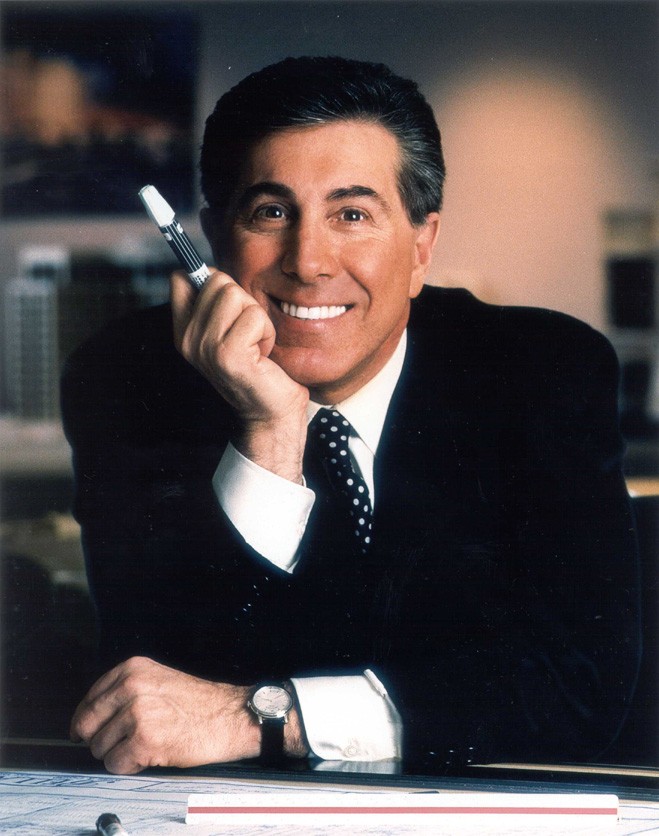
Called “the anti-Trump”
by Time Magazine, Steve Wynn is responsible for developing the Las
Vegas landscape into what it is today. He has built and operated
several hotels and casinos, including The Mirage, Treasure Island, and
Bellagio. He broke his own rules with his most expensive project, Wynn
Las Vegas, which forgoes much of the glitz and glamor normally
associated with Vegas and requires guests to actually walk inside the
building to enjoy the free attractions. Wynn’s
dealings in Vegas go back over thirty years, to the early 1970s, when
he gained controlling interest in (and completely made-over and
expanded) one of the oldest Vegas casinos, The Golden Nugget.
25. Chad Meredith Hurley
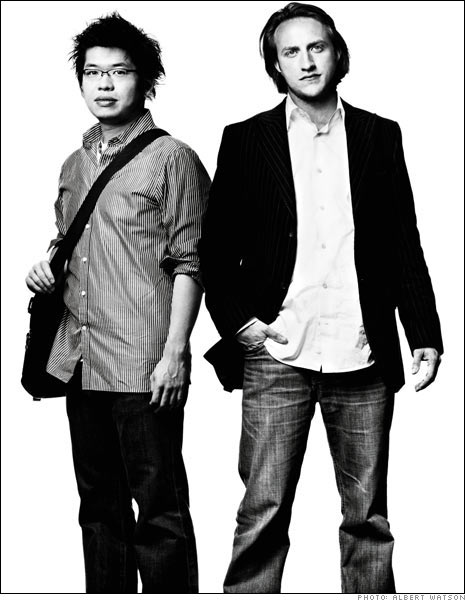
YouTube was created in early 2005 by friends who wanted a better way to share their home videos. The next year it was sold to Google
for $1.65 billion. It is now one of the most widely accessed sites on
the Web, and practically defines the internet experience for millions of
users. YouTube’s influence on the United States presidential elections alone is staggering. Of YouTube’s three founders, CEO Chad Meredith Hurley
profited the most form the sale to Google. He received approximately
$345.6 million in shares of Google stock, which is about 20 million more
than co-founder Steven Chen, and more than five times as much as the
third co-founder, Jawed Karim. Before that, Hurley’s greatest claim to
fame was having designed the PayPal logo. Just over thirty years old,
Hurley’s vision helped redefine the way people communicate all over the
world.
http://www.businesspundit.com/25-businessmen-who-broke-the-rules-and-some-laws/3/
Entrepreneurship can be an alternative for youths looking for job in the following ways:
ENTREPRENEURSHIP AS AN ALTERNATIVE TO YOUTHS LOOKING FOR JOB
An
entrepreneur is any individual who possesses a business, firm or
venture. He is accountable for its development, risks and rewards
associated with it. He is a person with ability to see and evaluate
business opportunities, to gather necessary resources, to take
advantage of them and initiate appropriate action to ensure success.
Entrepreneurship
is the ability to create and build a vision from practically nothing.
Fundamentally, it is a human creative act; it is the application of
energy to initiate building an enterprise or organization, rather
than just watching and analyzing. It is the ability to sense an
opportunity when others see chaos, contradiction and confusion
(Schumpeter 1950).It may mean reviving an existing business for
capitalizing on fresh activities.
 |
| Bill Gates (1955- ) |
Scholar
Robert .B. Reich provided the following essential qualities of an
entrepreneur; Leadership, Management ability and, team building. This
is applied by Larry, Bakhresa and Bill gates. Said Salim Awadh Bakhresa (born 1949 in Zanzibar), is an extremely reclusive Tanzanian
business tycoon.the founder and the chairperson of the Bakhresa Group
Of Companiesa well-known industrialist in the mainland of Tanzania and
island of Zanzibar.
At the age of 14, he dropped out of school to become a potato mix salesperson and would later go on to become a successful African businessman. Bakhresa Group;
is a conglomerate of various companies and is the largest milling
company in East Africa with operations in Tanzania and five other
countriesAfter getting into the potato mix industry, Bakhresa got involved as a restaurant operator in the 1970s and then went into grain millingHis group employs more than 2000 people and is Tanzania's largest conglomerateOther specialties produced through Bakhresa's conglomerate includes: confectioneries, frozen foods, various kinds of drinks, and packagingThe Azam brand is Bakhresa's most successful chocolate and ice cream manufacturer in Tanzania.
Bakhresa Group;
is a conglomerate of various companies and is the largest milling
company in East Africa with operations in Tanzania and five other
countriesAfter getting into the potato mix industry, Bakhresa got involved as a restaurant operator in the 1970s and then went into grain millingHis group employs more than 2000 people and is Tanzania's largest conglomerateOther specialties produced through Bakhresa's conglomerate includes: confectioneries, frozen foods, various kinds of drinks, and packagingThe Azam brand is Bakhresa's most successful chocolate and ice cream manufacturer in Tanzania.
At the age of 14, he dropped out of school to become a potato mix salesperson and would later go on to become a successful African businessman.
Entrepreneurship can be an alternative for youths looking for job in the following ways:
Owning
a business, firm or venture. This gives independence and opportunity
for entrepreneurs to strive for their economic prosperity. It gives
opportunity to get control of their own(their own bosses). For
example Larry
Page (1976) and Sergey Brin who are the founders of Google,
the most profitable internet business and Henry Ford(1863) was an
American industrialist, the founder of the Ford Motor Company.
Henry Ford (1864-1947) Larry Page
Individual
youths reap high profits through creativity and innovations.
Individuals take all the challenges. It is therefore a best way to
accumulate wealth. For instance Joe Dudley, an
American businessman and hair care entrepreneur. President and CEO
for Dudley Products Inc., a manufacturer and distributor of hair and
skin care products for the African American community. Also Mark
Elliot Zuckerberg(May1984),a Harvard dropout who turned
became world’s youngest billionaire in the
year 2008 as the founder of the social networking site
Facebook. He has been awarded ‘The Time Person
of The Year 2010′.
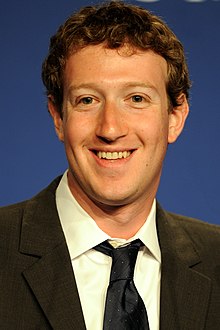  Joe Louis Dudley Joe Louis Dudley |
| Mark Elliot Zuckerberg May 14, 1984 |
Entrepreneurship
makes youths to work to their full potential. Launching a business to
youths is a tool of self- actualization and self-expression,
creativity, and skills. For example Reginald Mengi,
an avid philanthropist, the founder and Executive
Chairman of the IPP Group, one of the largest East African industrial
groups consisting a Financial Consulting firm, soft drink bottling
partnership with Coca Cola, detergent and toothpaste manufacturer and
IPP Media.
Entrepreneurs
establish business closely associated with their interests.
Furthermore, there is no particular age for retirement of
entrepreneurs. It therefore offers a chance to pursue their
interests. An example is Bill Gates Oct1955 (wealth
$59 billion), one of the world’s alive richest men and the founder
and present Chairman of Microsoft who revolutionized the computer
world with his entrepreneurship and business tactics.
The youth
through entrepreneurship introduce new technologies for which they
create jobs and employment for others too; for example Dell Company
found by Michael
Dell in
1984, they therefore mobilize capital resources, they develop new
markets, and discover new sources of materials to enjoy comparative
advantage in terms of supply, cost and quality. Also Steve Paul Jobs,
born February 24, 1955 was the co-founder and CEO of Apple
Inc,
NeXT and PIXAR.
Michael Saul Dell February 23, 1965
 Steve Paul Jobs (1955 – 2011)
Steve Paul Jobs (1955 – 2011)

 Steve Paul Jobs (1955 – 2011)
Steve Paul Jobs (1955 – 2011)
To sum up,
educators have to create a wide variety of programs and activities to
provide youths and students with the experiences that nurture the
spirit of entrepreneurship everywhere, for instance institutions like
SUA, UDOM,RUCO,UDSM,IUCO,MUCE, among others (in Tanzania) teaching
development
studies (to
produce job creators and not job seekers).People
should consider alternatives of running their own businesses rather
than doing jobs for others.
10 GREATINVESTORS WHO WERE FREEMASONS
The history of the international fraternity of Freemasonry is riddled
with secrets. Attempting to make a definitive account of its beliefs,
rituals and influence would prove to be an extremely difficult, if not
impossible, task. By their very nature, the Freemasons are a mysterious
group, and although in the 21st century they claim to be “less a secret
society and more a society with many secrets,” they do not relinquish
covert information to non-members readily. What is known about the
Freemasons is that a phenomenal number of great innovators, thinkers and
influential individuals have been, upon closer inspection, members of
this shadowy organization. The following inventive and original minds
all, in their own ways, changed the world — and they were also all
members of the Freemasons.
10. Vannevar Bush (1890 – 1974)
American engineer, scientist and developer of the first electronic
analogue computer Vannevar Bush is perhaps best remembered as the author
of the revolutionary essay “As We May Think.” Published in 1945, it
envisaged much of the technology we take for granted today, including
personal computers, the Internet, hypertext, online encyclopedias, and
speech recognition software. In 1939, Bush — a Worshipful Master in
Massachusetts’s Richard C. Maclaurin Lodge — was appointed president of
the Carnegie Institution of Washington; as such he assumed considerable
influence with the US Government in military and scientific research.
Bush was involved in the development and proposed use of the atomic
bomb. And, as the alleged head of the “Majestic 12” — the purported code
name of a secret committee of scientists, leaders and officials formed
by President Harry Truman — Bush is rumored to have investigated UFO
activity in the wake of the Roswell incident, the supposed crash of an
alien aircraft in New Mexico in 1947. The secrets his fellow Lodge
members may have heard are almost too immense to contemplate.
9. Sandford Fleming (1827 – 1915)
Sir Sandford Fleming was a Scottish-born Canadian inventor and
engineer. Perhaps best known as the man who, in 1851, designed the first
Canadian postage stamp, Fleming is also often credited with the
invention of standard time zones. Amongst his many achievements, Fleming
was chief engineer of the cross-continental Canadian Pacific Railway.
Knighted by Queen Victoria in 1897, Fleming was also a Freemason.
Freemasonry helped Fleming in no small way, providing him with links to
many influential members across the international fraternity. His
proposal of world time zones was supported by many powerful masons, most
notably the fourth Governor General of Canada, 9th Duke of Argyll John
Campbell. Fleming’s engineering genius also helped to bring about the
trans-Pacific submarine telegraph cable, which some have dubbed the
“Victorian Internet.”
8. John Theophilus Desaguliers (1683 – 1744)
The French-born astronomer, scientist, natural philosopher and priest
Rev. John Theophilus Desaguliers has been credited with the invention
of the planetarium and is also remembered as the man who took steam
engine design a step further though the addition of a safety valve.
Influenced by Sir Isaac Newton, whom he was an assistant to, the
Oxford-educated Desaguliers chose to settle in England. Desaguliers was
also an extremely prominent Freemason and a major force both in
collating the early history of the society and in attracting noblemen to
the world’s first known Grand Lodge — the Premier Grand Lodge of
England. Mystery shrouds his connection with Freemasonry up to 1719, but
in that year he was elected the third Grand Master, and after serving
in this post he subsequently held various prestigious positions within
the Fraternity — in his adopted home as well as in Europe. Desaguliers,
who appears to have invested far more time in science and Freemasonry
than he did in the Church of England, has been called the “Father of
Modern speculative Freemasonry.”
7. King Camp Gillette (1855 – 1932)
It can be reasonably claimed that the American innovator King Camp
Gillette changed the world when he launched the cheap, disposable safety
razor to a grateful public in 1901. Yet the founder of the world famous
Gillette brand (now a business unit of Procter & Gamble), who was
known for his business acumen and innovative marketing strategies, was
also a Freemason. Little is known of Gillette’s personal experience
within the Fraternity, but his political ideas are well documented and
must surely have been shared among other members. Gillette was a
“Utopian Socialist,” and envisioned a single public-owned corporation
that controlled the entire world’s industry. He also imagined a giant
US-wide city named Metropolis that would be powered exclusively by
Niagara Falls. King Camp Gillette: dreamer; inventor; Freemason.
6. Traian Vuia (1872 – 1950)
The Romanian inventor, engineer and aviation pioneer Traian Vuia was
one of the earliest innovators in flight technology. In 1906, his
self-propelled, fixed-wing aircraft – complete with landing wheels –
managed to fly 39 feet, approximately 3 feet off the ground. What is
less well known is that the aeronautics genius was a member of Romania’s
Masonic Order, which had grown steadily more organized following the
unification of its lodges in 1880. It has been reported that, in the
wake of World War I, Vuia was part of a small group of Freemasons who
traveled to the Peace Conference in Paris to facilitate links with the
Paris Ernest Renan Lodge — and in turn, between the governments of the
two countries. As a world famous innovator and designer, Vuia’s value to
Romania and his lodge was priceless, while journalists who were part of
the French fraternity ensured Romania got good press at the conference.
5. Antonio Meucci (1808 – 1889)
It is widely held that Alexander Graham Bell was the inventor of the
telephone. However, it is also claimed that inventor, revolutionary
thinker and unconfirmed Freemason Antonio Meucci had devised the
principles of the telephone when Bell was still an infant, and had a
working model by 1859 — long before Bell and others. Unfortunately for
the Italian, due to technical omissions relating to vocal sounds in his
patent — which was filed five years before Bell’s — he never gained the
credit for his work; until recently, that is. In 2002, the US Congress
officially recognized Meucci’s work in the development of the telephone.
The rumors of Meucci’s involvement with the Freemasons appear to be
largely down to his close friendship with the great military hero
Giuseppe Garibaldi, the unifier of Italy. Garibaldi was an active Mason
and arrived in New York around the same time as Meucci. The two shared
ideas, and it seems likely that Freemasonry played some part in this
exchange.
4. James Bowie (1796 – 1836)
James “Jim” Bowie, legendary frontiersman, pioneer, battle hero and
reputed joint designer of the Bowie knife (with a little help from his
brother, Rezin), is something of a folk hero in American cultural
history. Bowie’s fame was born of violent circumstances. Having been
shot and stabbed in the famous brawl known as the Sandbar Fight, Bowie
killed the sheriff of Rapides Parish, Norris Wright, with an unusually
long knife. It’s said that this became the basis for the design of the
now-famous hunting knife. While many different manufacturers have
produced their own versions of the blade, Bowie can lay claim to being
the original inspiration for the design. Among his many other roles —
including a slave trader and land speculator — Bowie was an esteemed
member of L’Humble Chaumiere Lodge No. 19 at Opelousas, Louisiana. Yet
just as his life appeared to be at its most settled and comfortable, his
wife and children were killed in a cholera outbreak. He then fought and
died alongside fellow national icons Davy Crockett and William Travis
at the Battle of the Alamo in 1836.
3. Samuel Colt (1814 – 1862)
The American industrialist and inventor Samuel Colt is best known for
popularizing the revolver that eventually led to the Colt Single Action
Army, otherwise known as the Colt .45. He applied for his first patent
at the age of 18, and his dream of perfecting the ‘impossible gun’ never
faded. An engaging and pioneering character in the world of munitions
and other fields, Colt once made a living as “the celebrated Dr. Coult,”
lecturing on chemistry and performing demonstrations of the effects of
Nitrous Oxide on willing audience members. Like his manufacturing rival
Daniel Leavitt — who patented the first revolver after his own — and
another great firearms exponent, Richard Gatling, Colt was also an
active Freemason. Colt’s name will forever be associated with the gun,
and interestingly his products were of great use to fellow Masons Benito
Juárez, Simon Bolivar, Giuseppe Garibaldi and Sam Houston in their
various violent revolutionary activities.
2. The Montgolfier Brothers (Joseph-Michel Montgolfier (1740 – 1810) and Jacque-Étienne Montgolfier (1745 – 1799))
The celebrated French inventors the Montgolfier Brothers — arguably
the earliest important names in the history of aviation — performed the
first manned ascent of a hot air balloon in 1783. Based on experiments
with bags made of paper and fabric and a naked flame, their paper-lined
silk balloon was lifted 6,562 feet in the air. In the same year they
successfully transported first animals (a sheep, a rooster and a duck)
and then later human passengers, the first one being Jacque-Étienne
himself. Less is known about the brothers’ lives as Freemasons, but like
Jean-François Pilâtre de Rozier — who made the first untethered manned
flight in a Montgolfier balloon — they were active members of the
Fraternity.
1. Benjamin Franklin (1706 – 1790)
Benjamin Franklin, the great statesman, scientist, political theorist
and philosopher, is without doubt one of the most important inventors
and public figures in American history. The creator of the Franklin
stove, bifocal glasses and the glass harmonica also believed in
generously donating his genius and never patented his work. He was a
true Renaissance man, and possibly his greatest gift to civilization was
the lightning rod, which led to a greater understanding of the nature
of electricity. Franklin was active as a Freemason from at least as
early as 1731, when he was initiated into St. John’s Lodge in
Philadelphia. Appointed Grand Master of the Grand Lodge of Pennsylvania
in 1934, he was heavily involved in Masonic work his entire life, and
edited and reprinted Scotland’s Rev. James Anderson’s Constitutions of
the Free-Masons in the same year as his high appointment. This was the
first Masonic book in America and effectively linked the “Antient” and
the “Modern” world. Franklin, known as the “First American,” was
instrumental in the creation of modern America and, in doing so, brought
the secrets of Freemasonry to a new nation. Or at least to its chosen
few.
http://www.businesspundit.com/10-great-inventors-you-never-knew-were-freemasons/
 Robert Owen
(1771 – 1858) - Welsh social reformer who attempted to build utopian
socialist and co-operative movement. His New Lanark factory was
influential in showing workers could be treated well and a business
still be profitable.
Robert Owen
(1771 – 1858) - Welsh social reformer who attempted to build utopian
socialist and co-operative movement. His New Lanark factory was
influential in showing workers could be treated well and a business
still be profitable.
A list of the top 10 famous entrepreneurs. People who created and built successful businesses.
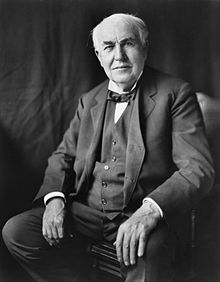 Thomas Edison (1847 – 1931)
Thomas Edison (1847 – 1931)
Edison filed over 1,000 patents during his life. But, he also combined a rare inventor's capacity to make them commercially viable. He made a fortune through the electric light bulb and other inventions such as the phonograph. Richard Branson (1950-)
Richard Branson (1950-)
A high school drop out, Richard Branson founded the Virgin group of more than 400 companies. It all grew out of a small record shop in London. Branson said he became an entrepreneur by chance because he wanted to have some fun and do things better than existing firms. Steve Jobs (1955 – 2011)
Steve Jobs (1955 – 2011)
Steve Jobs was the co-founder of Apple Computers, and a leading exponent of the personal computer revolution. Jobs oversaw the development of key innovations in the mobile technology revolution such as iPhone, iPod and iPad. Anita Roddick (1942 – 2007)
Anita Roddick (1942 – 2007)
Anita Roddick was the founder of the Body Shop, a cosmetic firm, with strong ethical principles. Roddick showed entrepreneurs could succeed in business and maintain an ethical profile. Bill Gates (1955- )
Bill Gates (1955- )
Co-founder of Microsoft, Bill Gates helped revolutionise operating systems for personal computers, becoming one of richest persons on the planet. He now works full-time for his charitable foundation. Henry Ford (1864-1947).
Henry Ford (1864-1947).
Pioneered the use of Mass production for motor cars, helping to reduce the price and make cars affordable for the average American consumer.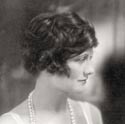 Coco Chanel
(1883-1971 )
Coco Chanel
(1883-1971 )
Coco Chanel was a French designer and costume maker, instrumental in defining feminine style and dress during the 20th Century. Her ideas and business practises were revolutionary. Larry Page
Larry Page
Along with Sergey Brin, is the co-founder of Google, which became one of fastest growing businesses of all time. Larry Page helped invent Page Rank which made Google most popular search engine. James Dyson
James Dyson
British inventor and businessman, who invented the bag less vacuum cleaner and successfully marketed and sold product. Has continued to sell innovate designs, such as Dyson hand-driers.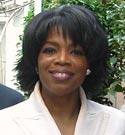 Oprah Winfrey 1954 -
Oprah Winfrey 1954 -
Influential talk show host, who has also created a successful business empire, including her highly influential book club. She is considered one of the most influential women in the world.
Other Famous Entrepreneurs
 Robert Owen
(1771 – 1858) - Welsh social reformer who attempted to build utopian
socialist and co-operative movement. His New Lanark factory was
influential in showing workers could be treated well and a business
still be profitable.
Robert Owen
(1771 – 1858) - Welsh social reformer who attempted to build utopian
socialist and co-operative movement. His New Lanark factory was
influential in showing workers could be treated well and a business
still be profitable.- Sir Titus Salt (1803 – 1876) - Victorian businessman who developed successful manufacture of Alpaca wool in Bradford, Yorkshire. Also famous for building his model village in Saltaire, and being one of few businessmen of era to care about his workers.
- Robert Maxwell - Printing and media. On his death left large hole in his companies pension funds.
- Walt Disney (1901 - 1971) . Movie producer and creator of Disney theme parks
- Estee Lauder (1908 - 2004) Creator of America's biggest cosmetic company.
- Donald Trump. Real estate and media mogul.
- Carlos Slim Helu - Mexican entrepreneur, one of richeste people in the world.
- Theo Paphitis graduating from office clerk in Lloyds of London, Theo Paphitis made a fortune in property before investing in NAG mobiles and turning around Ryman's stationers (£250 million) turnaround. Features as one of BBC's dragons
- John D. Rockfeller (1839-1937). Became immensely rich buying into Standard Oil and coming to dominate the oil and railroad industry. Later in life, he became a philanthropist giving much of his money away.
- Lakshmi Mittal (1950- ) Born in a village without electricity in India, he started his working life as a steel worker. Lakshmi went on to buy his own steel mills and turn loss making steel companies around. By 2008, he had a net worth of $16bn in 2012, making him 22nd richest person according to Forbes.
Citation : Pettinger, Tejvan. G+ "Top 10 Entrepreneurs", Oxford, www.biographyonline.net, 20th Feb. 2013
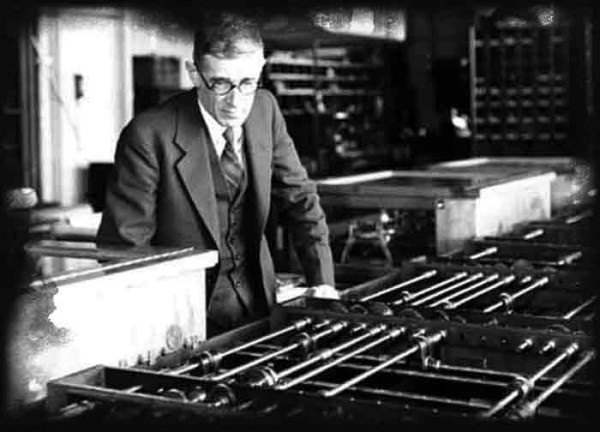

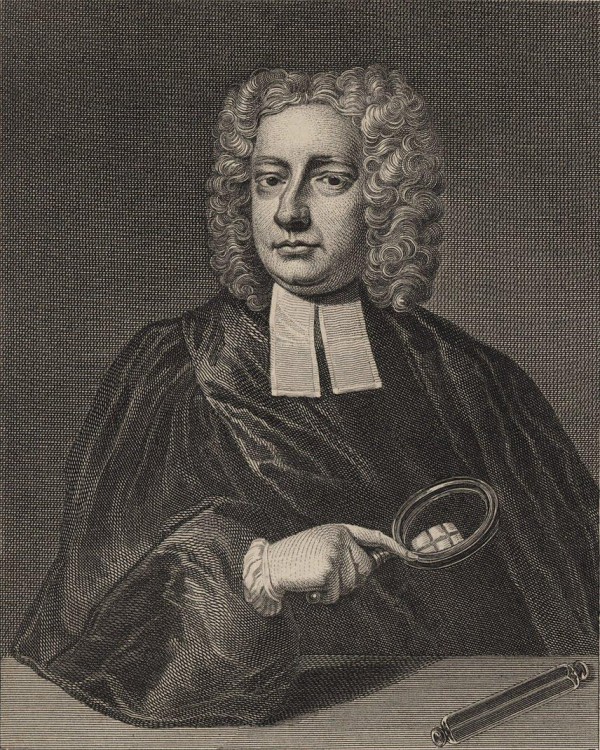

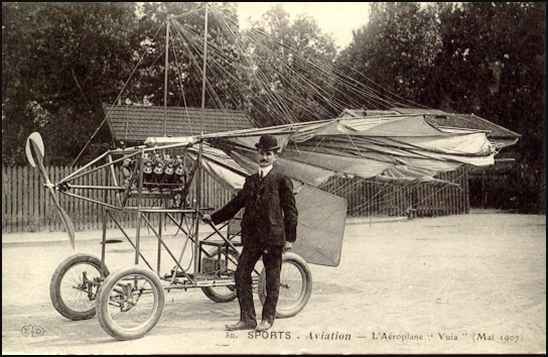
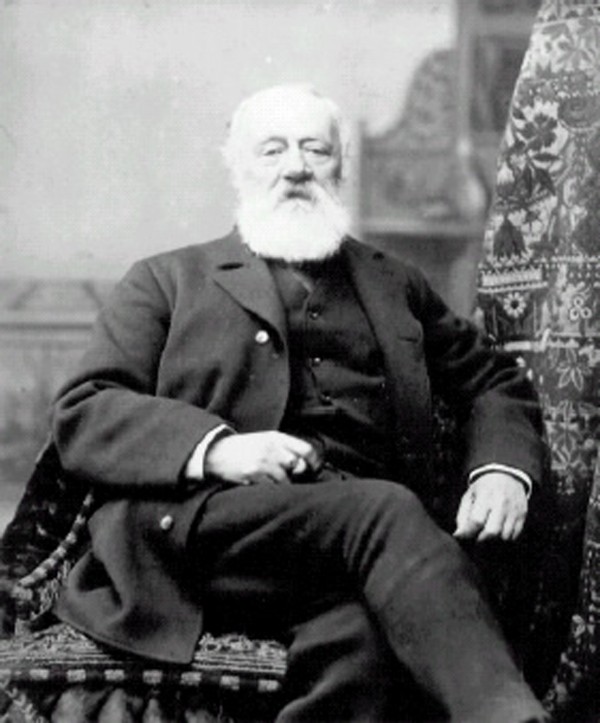
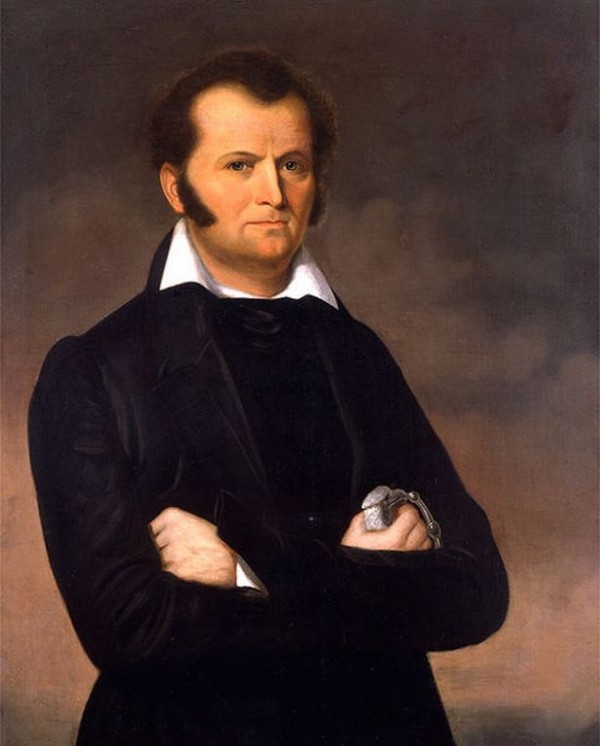
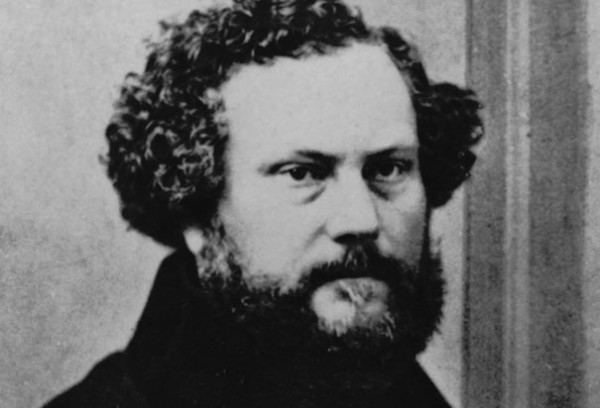
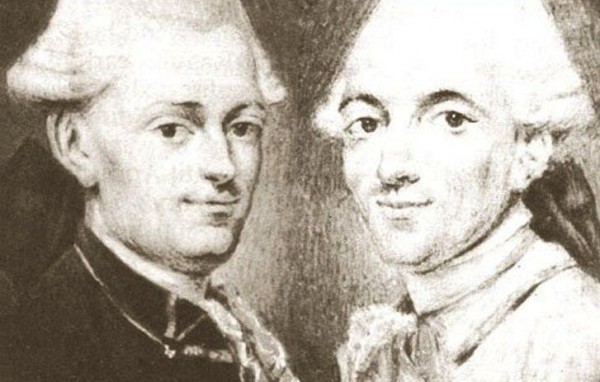
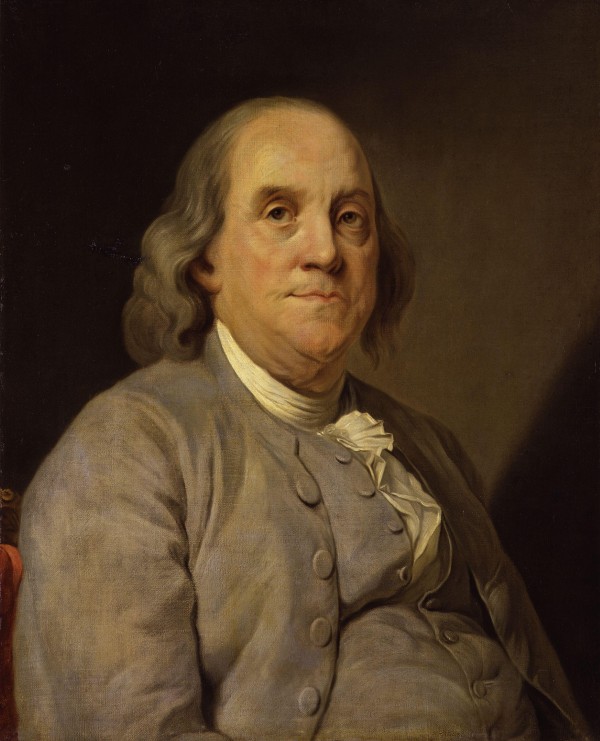
No comments:
Post a Comment